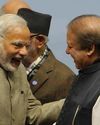The government must be bold enough to up-end the activists who are coming in the way of the nation’s agricultural progress.

FEAR, SCEPTICISM, REJECTION, and anxiety in humans are normal reactions to anything new that they encounter. Such initial reaction to genetically modified (GM) crops was a norm about 30 years ago. It began in the United States with a group of women belonging to a club called Mothers Against Drunken Driving (MADD) in the early 1980s as soon as the word was out that scientists had gained the ability to manipulate DNA, the basic molecule of life. Those were the early days of the gene revolution when recombinant DNA (rDNA) techniques were used to cut DNA into pieces and select the piece needed to insert it into another organism.
Organisms that had a new piece of DNA inserted into their nucleus (chromosomes) came to be called transgenic organisms or genetically engineered organisms (GEOs). The UN calls them Living Modified Organisms (LMO), a compromised political definition. But people who started protesting the technology called them GMOs, a misnomer because all organisms are genetically modified either in nature or by human intervention.
So those who started opposing it to make their campaign effective started calling them GMOs to appeal to the public.
Today, a scientifically accurate term GEOs is nothing but GMOs, which is used in common parlance. Scientists lost this fight a long time ago in the war of words.
This story is from the August 2017 edition of Swarajya Mag.
Start your 7-day Magzter GOLD free trial to access thousands of curated premium stories, and 9,000+ magazines and newspapers.
Already a subscriber ? Sign In
This story is from the August 2017 edition of Swarajya Mag.
Start your 7-day Magzter GOLD free trial to access thousands of curated premium stories, and 9,000+ magazines and newspapers.
Already a subscriber? Sign In

Refuging Progess
There is a well-orchestrated global conspiracy to deny scientific and technological developments from the West to Third World countries.

The Monk Of Science
Vivekananda believed that Religion should be subjected to scientific methods of investigation. The third and concluding part of our series on the Swami and his views on science.
The Next Step
Indian technical manpower can be trained for high-value-added emerging services in the era of mass commoditisation of hardware.
The Threat Of Autarchy
The force of globalisation is an irreversible reality, and it is countries like India and China that will nurture it going forward.

Neanderthals: The Womb Of Caves
Recent discoveries indicate that Neanderthals may have had a rich inner life, including symbolic thought. Indeed, they may have been the progenitors of human religions.

Getting India's World Right
Incremental concessions will get India nowhere with Pakistan and China. What we need is a classically conservative foreign policy, based on realism.

The Hesitant Orbit
In order to march boldly ahead into the deep space, New Delhi must work towards building a station, boost its techno-economic planning and use the Indian Space Research Organisation smartly.

Nudges And Narratives
The debate surrounding Sanjay Leela Bhansali’s Padmavati brings India a complex network of portraits within a cultural world-system.

The Spell Of Specialisation
THE INDIAN ADMINISTRATIVE SERVICE NEEDS AN URGENT REJIG. THE KEY TO SPEED AND EFFICIENCY LIES IN PUTTING AN END TO A GENERALIST APPROACH AND IN GOING FOR A NEW SERVICE.
The Great Gamble
With demonetisation, the prime minister has taken a huge risk— both economic and political. He must succeed, because this move could transform both our economy and our society.